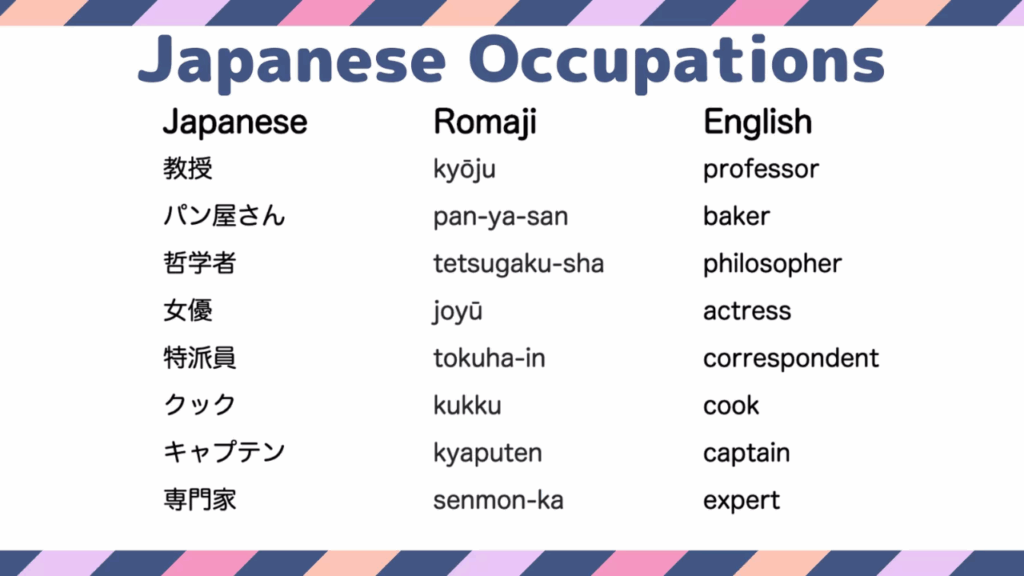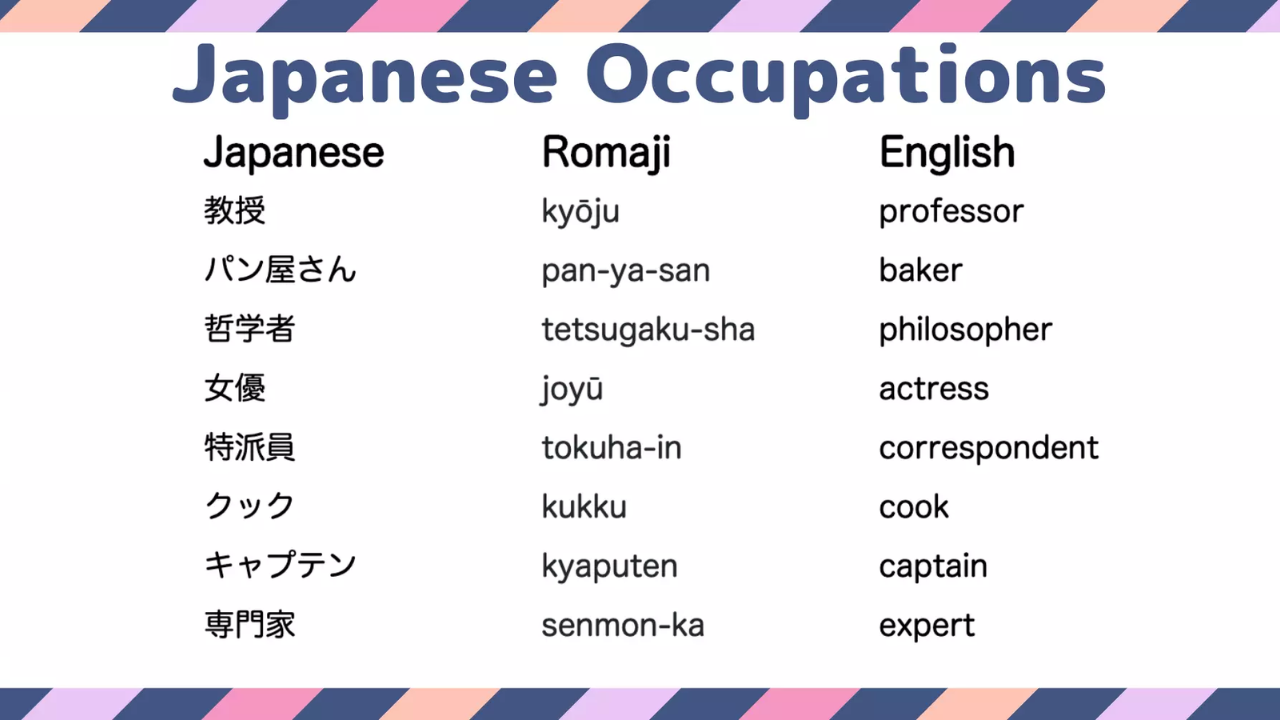
For professionals working in or with Japan, learning business Japanese vocabulary is more than just a language skill—it is a gateway to smoother communication, stronger relationships, and greater career opportunities. Unlike casual Japanese, business Japanese (ビジネス日本語 / bijinesu nihongo) emphasizes formality, respect, and precision, which are essential in professional settings.
This guide explores the essential business Japanese vocabulary that every professional should know, including workplace expressions, polite phrases, and industry-specific terms.
Why Business Japanese Vocabulary Matters
- Professional Image – Using the right words shows competence and cultural awareness.
- Building Trust – Japanese business culture values respect; proper vocabulary helps establish credibility.
- Effective Communication – Misunderstandings decrease when you use industry-appropriate language.
- Networking Opportunities – Conversations become smoother, whether in meetings, emails, or conferences.
Essential Workplace Vocabulary
Common Terms in Business Settings
- 会社 (かいしゃ / kaisha) – Company
- 会議 (かいぎ / kaigi) – Meeting
- 同僚 (どうりょう / dōryō) – Colleague
- 上司 (じょうし / jōshi) – Boss / Supervisor
- 部下 (ぶか / buka) – Subordinate
- 部署 (ぶしょ / busho) – Department
Example Sentences
- “明日の会議は何時ですか?” (Ashita no kaigi wa nanji desu ka?) – What time is tomorrow’s meeting?
- “上司に確認します。” (Jōshi ni kakunin shimasu.) – I’ll check with my boss.
Polite Phrases for Professional Communication
In Japanese business culture, politeness is critical. These expressions help maintain professionalism:
- よろしくお願いします (Yoroshiku onegaishimasu) – A polite closing, “I look forward to working with you.”
- お世話になっております (Osewa ni natte orimasu) – A common greeting in emails, meaning “Thank you for your continued support.”
- 承知しました (Shōchi shimashita) – A polite way of saying “Understood.”
- 失礼します (Shitsurei shimasu) – Used when entering/exiting offices; means “Excuse me.”
- 少々お待ちください (Shōshō omachi kudasai) – “Please wait a moment.”
Vocabulary for Meetings and Presentations
Meetings are a central part of Japanese corporate culture.
- 資料 (しりょう / shiryō) – Materials / Documents
- 発表 (はっぴょう / happyō) – Presentation
- 意見 (いけん / iken) – Opinion
- 提案 (ていあん / teian) – Proposal
- 議題 (ぎだい / gidai) – Agenda
Useful Phrases
- “ご意見をお聞かせください。” (Go-iken o okikasete kudasai.) – Please share your opinion.
- “この提案について説明します。” (Kono teian ni tsuite setsumei shimasu.) – I’ll explain this proposal.
Business Japanese for Emails
Emails in Japan require formal phrasing and structured greetings.
Common Email Vocabulary
- 件名 (けんめい / kenmei) – Subject line
- 返信 (へんしん / henshin) – Reply
- 添付 (てんぷ / tenpu) – Attachment
- 確認 (かくにん / kakunin) – Confirmation
Common Email Openings and Closings
- Opening: “いつもお世話になっております。” (Itsumo osewa ni natte orimasu.) – Thank you for your continued support.
- Closing: “何卒よろしくお願いいたします。” (Nani tozo yoroshiku onegai itashimasu.) – A highly polite form of “I look forward to your cooperation.”
Industry-Specific Business Vocabulary
Different industries use specialized vocabulary.
| Industry | Key Words | English Meaning |
|---|---|---|
| Finance | 投資 (tōshi), 株式 (kabushiki) | Investment, Stocks |
| Technology | 技術 (gijutsu), 開発 (kaihatsu) | Technology, Development |
| Marketing | 広告 (kōkoku), 顧客 (kokyaku) | Advertisement, Client |
| Hospitality | 予約 (yoyaku), 接客 (sekyaku) | Reservation, Customer Service |
| Trade | 輸出 (yushutsu), 輸入 (yunyū) | Export, Import |
Overview Table
| Category | Examples | Common Use |
|---|---|---|
| Workplace Terms | 会議, 上司, 部署 | Daily office interactions |
| Polite Expressions | よろしくお願いします, 承知しました | Professional respect |
| Meetings | 資料, 提案, 議題 | Presentations & discussions |
| Emails | 件名, 添付, 確認 | Formal correspondence |
| Industry Vocabulary | 投資, 技術, 広告 | Field-specific languag |
Tips for Mastering Business Japanese Vocabulary
- Practice Keigo (敬語) – Japanese honorific speech is vital in business.
- Role-Play Business Situations – Simulate meetings, phone calls, and presentations.
- Use Flashcards with Context – Learn words along with example sentences.
- Study Business Emails – Copy standard greetings and closing phrases.
- Listen to Japanese Business News – Helps reinforce professional vocabulary.
Common Mistakes to Avoid
| Mistake | Why It’s a Problem | Solution |
|---|---|---|
| Using casual speech | Seen as unprofessional | Learn keigo (敬語) forms |
| Overusing English words | Not always understood | Use Japanese equivalents |
| Forgetting polite closings | Considered rude | Always end emails with よろしくお願いします |
| Mispronouncing industry terms | Causes confusion | Practice with audio resources |
| Ignoring hierarchy vocabulary | Disrespects seniority | Use 上司, 部下 correctly |
Final Thoughts
Mastering business Japanese vocabulary is a powerful tool for professionals seeking success in Japan or working with Japanese companies. From workplace interactions and meetings to emails and presentations, these words and phrases will help you communicate with confidence and professionalism.
By focusing on polite expressions, industry-specific vocabulary, and practicing real-world situations, you can quickly elevate your business Japanese skills and stand out as a professional who respects and understands Japanese corporate culture.
3 Best One-Line FAQs
Q1. What is the most useful business phrase in Japanese?
A. “よろしくお願いします” (Yoroshiku onegaishimasu), as it works in nearly all professional contexts.
Q2. Do Japanese professionals expect foreigners to use keigo?
A. Not perfectly, but effort to use keigo is highly respected.
Q3. How can I improve my Japanese business emails?
A. Study standard templates and practice using formal greetings and closings.

